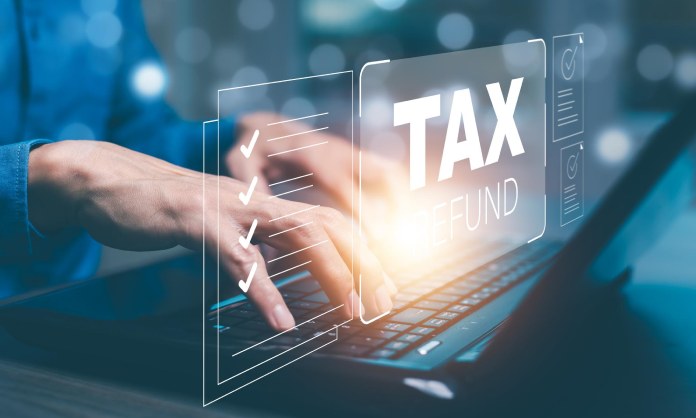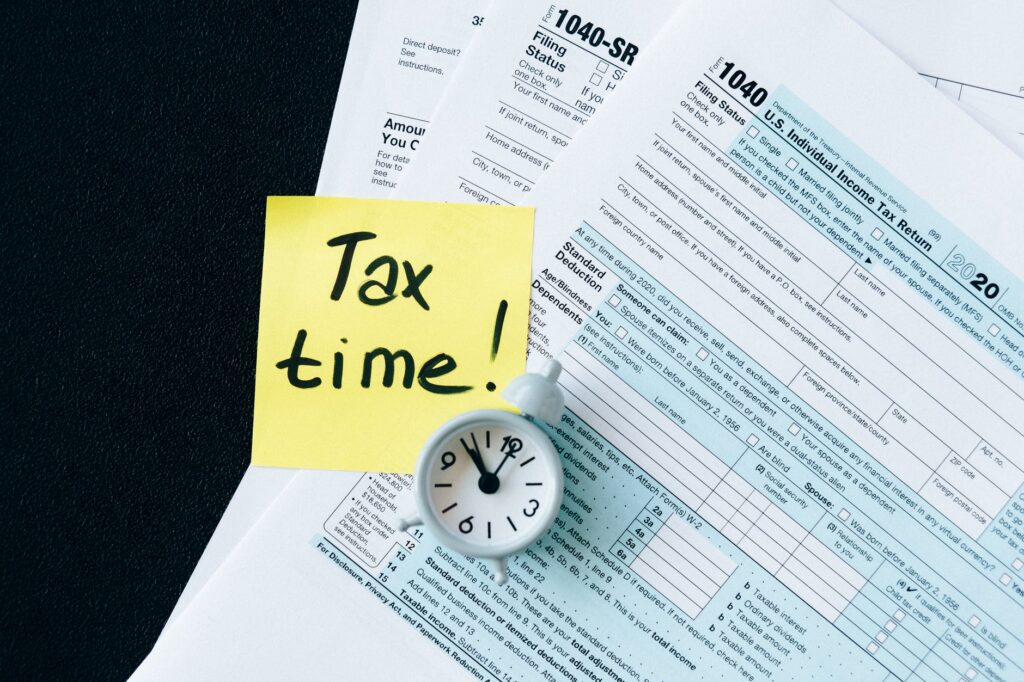Taxes In Retirement Need Not Be Difficult. Here Is The Proof
5 Mins Read
Published on: 15 January 2022
Last Updated on: 14 November 2024

- What Tax Surprises You Must Anticipate?
- 1. Taxable Retirement Plans
- 2. Forced Taxable Retirement Plan Distributions
- 3. Rising Property Taxes
- 4. Be Ready for These Taxes
- Some Factors About Taxes That You Need To Remember
- Pay Attention To Social Security
- Limit pretax retirement income
- Understand IRA Tax Treatment
- Roth IRA Distributions
- Diversify
- The Closing Thought
Most people look forward eagerly to retirement. It marks a change in your life, and maybe you have big plans for your Golden Years, such as traveling or focusing more on one of your hobbies.
What some individuals might not necessarily realize, though, is that retirement can bring some tax surprises along with it. We will talk about a few of those right now.
What Tax Surprises You Must Anticipate?

Well, tax surprises can be unprecedented and annoying at times. Therefore, you must have a sense of clarity before jumping in. This section will help you understand these surprises so that you do not get shocked.
Therefore, follow along to know more:
1. Taxable Retirement Plans
Perhaps you’ve been saving diligently your whole professional life. You’ve put money in your 401(k) or IRA each week. That’s great, but now, as you approach retirement, you will probably have to pay taxes on any money you withdraw.
Be ready to pay off tax debt out of those withdrawals. The only time you won’t have to do that is if you have set up accounts where you’ve only contributed after-tax money over the years.
A Roth IRA is an example of a retirement account into which you can contribute after-tax dollars. Non-Roth IRAs and the average 401(k) are still taxable, even once you reach the appropriate age where you can withdraw without being penalized for pulling money out early.
2. Forced Taxable Retirement Plan Distributions

Maybe you have a traditional IRA, but you would like to keep from paying taxes on it, so you decide to avoid withdrawing distributions.
You should know that when you reach age 70 and ½, the IRS mandates that you start taking distributions from your retirement plans. In other words, you can’t leave your money in there indefinitely because you want to avoid paying taxes on it.
Maybe you feel like you don’t necessarily need or want to withdraw that money. When you reach the mandated age, though, you should still make those withdrawals. If you don’t, the penalty can be up to 50% of the amount you were supposed to take out (which is far worse than the taxes you would pay on the withdrawals).
3. Rising Property Taxes
When you retire, you might decide to live on a fixed income. Doing so allows you to know exactly how much money you’ll have to spend during any designated period.
As long as you’re not traveling or doing anything too extravagant, your expenses should remain static. However, some costs can continue rising because of inflation.
Beyond that, one cost that will probably continue to rise as you get older will be your property taxes. You’ll need to consider this possibility if you own your own home.
The housing market is a bit unpredictable, but home prices have gone up around the country in recent years. This means your home’s assessed value might have gone up, and your property taxes will keep mounting as well.
Some people like the fact that their home is worth more, and they feel like the rising property taxes aren’t such a big deal. However, as a retiree, you probably are not interested in selling your home. That means the rising property taxes are a potential hindrance and drain on your cash flow.
4. Be Ready for These Taxes

If you know about the three areas we’ve mentioned, and you’re mentally ready for them, they shouldn’t come as a shock when they materialize. Understand that most retirement plans are taxable and that you must take distributions when you reach age 70 and ½ to avoid paying some hefty penalties. Realize that your property taxes are likely to continue rising as well unless the bottom suddenly drops out of the housing market.
Nobody likes paying these taxes, but you can at least be prepared for them. Knowing they are coming should make them seem like less of a burden when they arrive.
Some Factors About Taxes That You Need To Remember
Retirement seems like a distant reality that you do not need to worry about. However, you would reach the retirement age earlier than you could imagine.
Therefore, it is essential to know and understand the factors that decide retirement taxation rates. Here is a small yet comprehensive look at retirement taxation.
Here are some of the factors that you need to look at.
Pay Attention To Social Security
Social security benefits are of immense importance when it comes to retirement. If you have been an earner, you are allowed to take advantage of the Social Security features. This would allow you to get tax rebates of all kinds. Therefore, pay close attention to social security rebates.
Limit pretax retirement income
Pretax plans like 401(k) are usually subjected to tax reduction on withdrawal. This is generally seen as income, and an elemental income tax percentage is deducted. Therefore, the overall number of pretax retirement plans should be limited. Otherwise, you might have to pay a higher rate of tax.
Understand IRA Tax Treatment
Understanding taxes in retirement can be a tedious job. However, you could follow the IRA tax treatment in order to stay ahead of the curve. Therefore, the best way to proceed is to have a clear understanding of the IRA tax treatment and how it can be manipulated in order to get some tax benefits.
Roth IRA Distributions
Pretax retirement plans are subjected to tax deductions. This is because the government sees these as income and would exact appropriate taxes. One way to avoid paying this tax is by converting your pretax income into Roth IRA distributions. Roth IRA distributions allow assets to have lower tax brackets. Therefore, you can have more earnings.
Diversify
Another essential aspect that you need to remember is to diversify your retirement income. Every form of retirement plan comes with its own pros and cons. Therefore, diversifying can actually help you to gain more in returns. Which can help you have more money during your retirement phase. Consequently, you need to diversify and include more streams of retirement income effectively.
The Closing Thought
In summation, taxes in retirement can be a buzzkill. If you are someone with a lot of pretax financial holdings, you might have to pay a hefty amount in tax. Therefore, follow the aforementioned tips in order to maximize taxable returns.
Additional Reading:


















Comments Are Closed For This Article